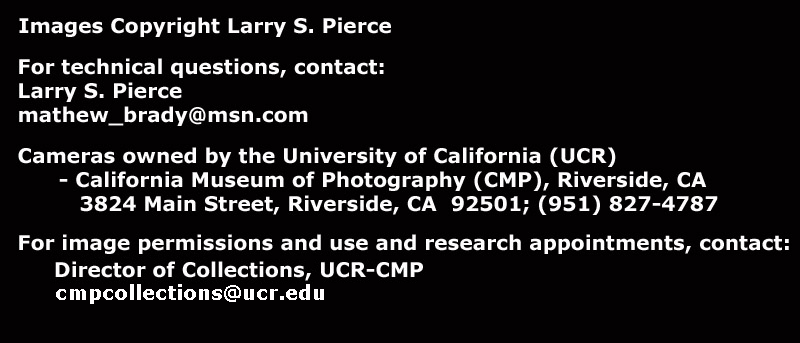Schultze Photo Equipment Co., New York, NY
NPA Camera Variation 2 (made by E.&H.T. Anthony)
5 x 7", Serial (or Assembly) No. 15
(on edge of rear standard)
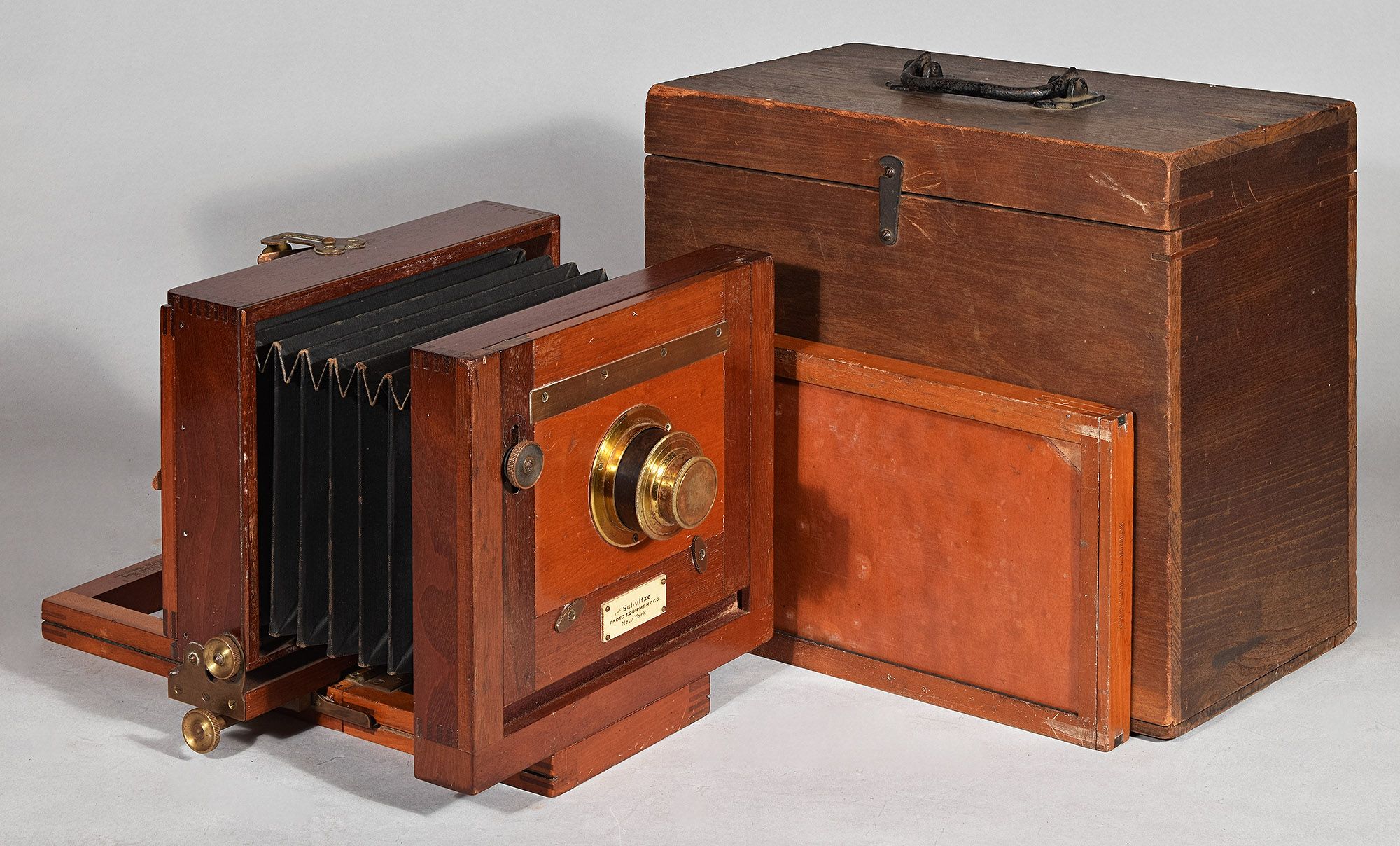
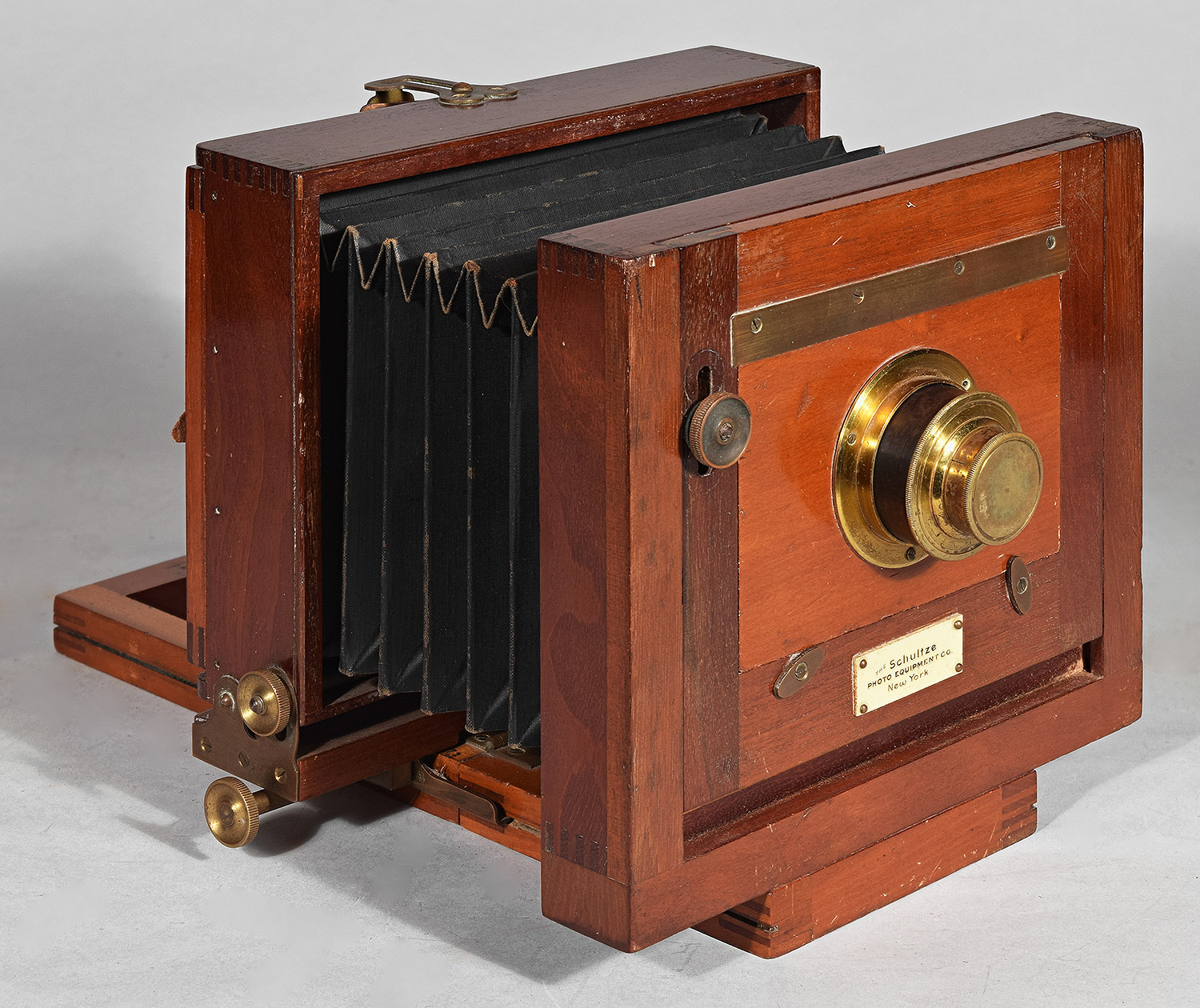
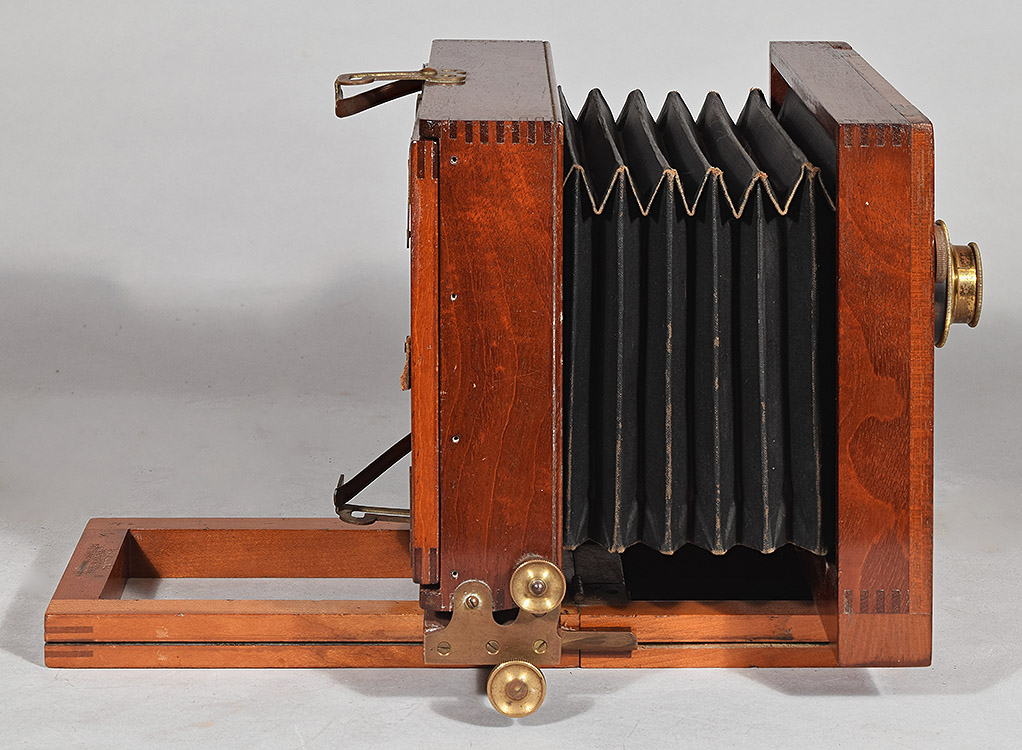
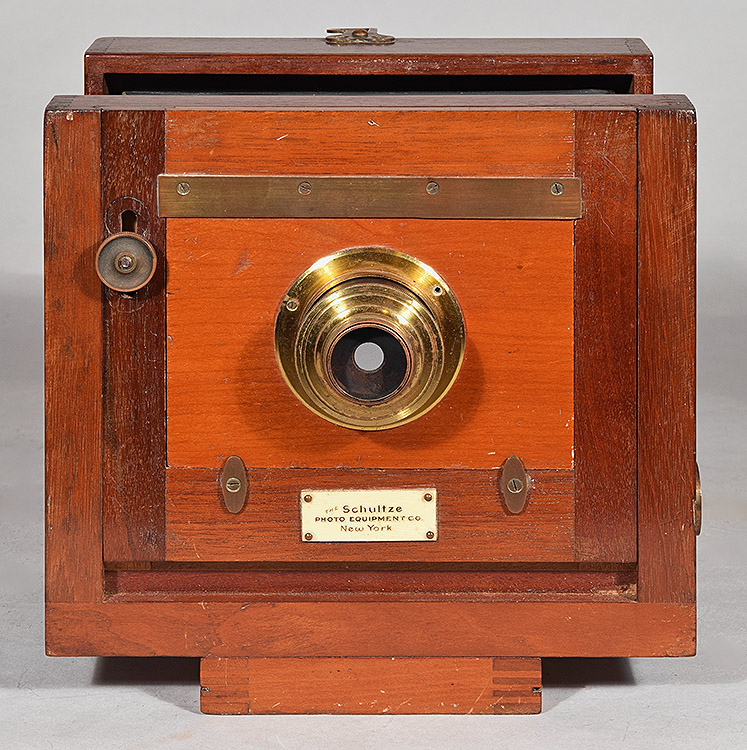
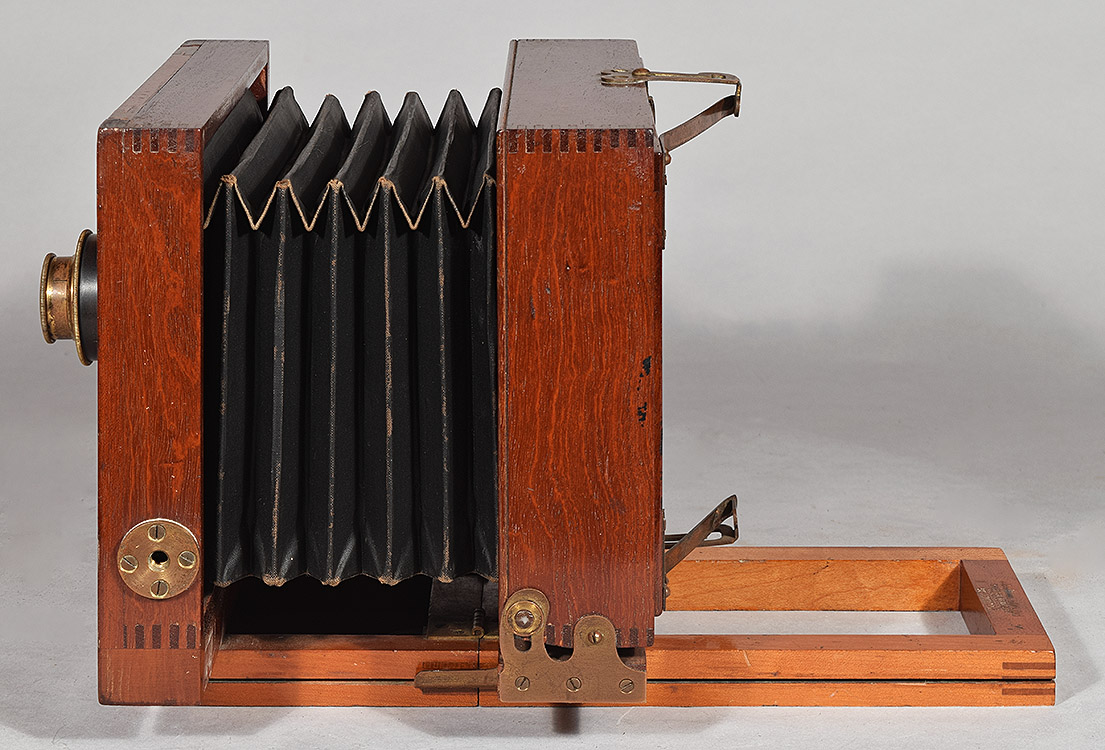
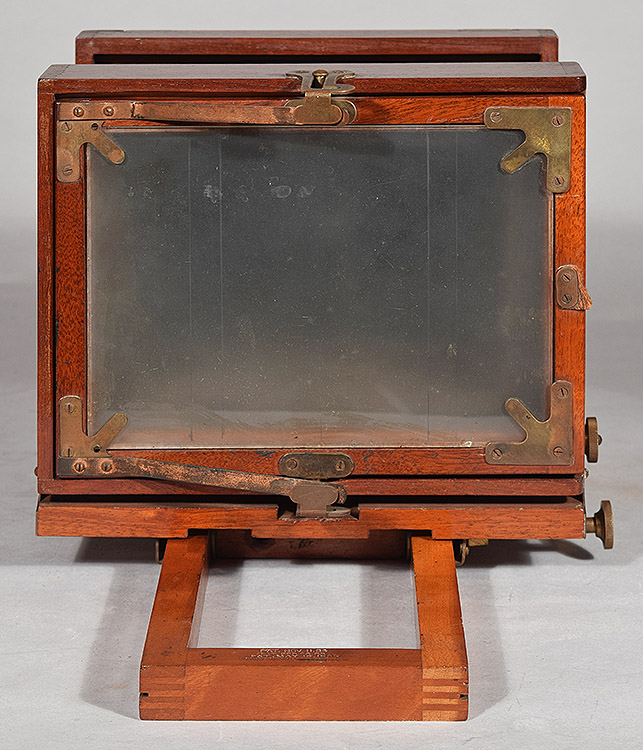
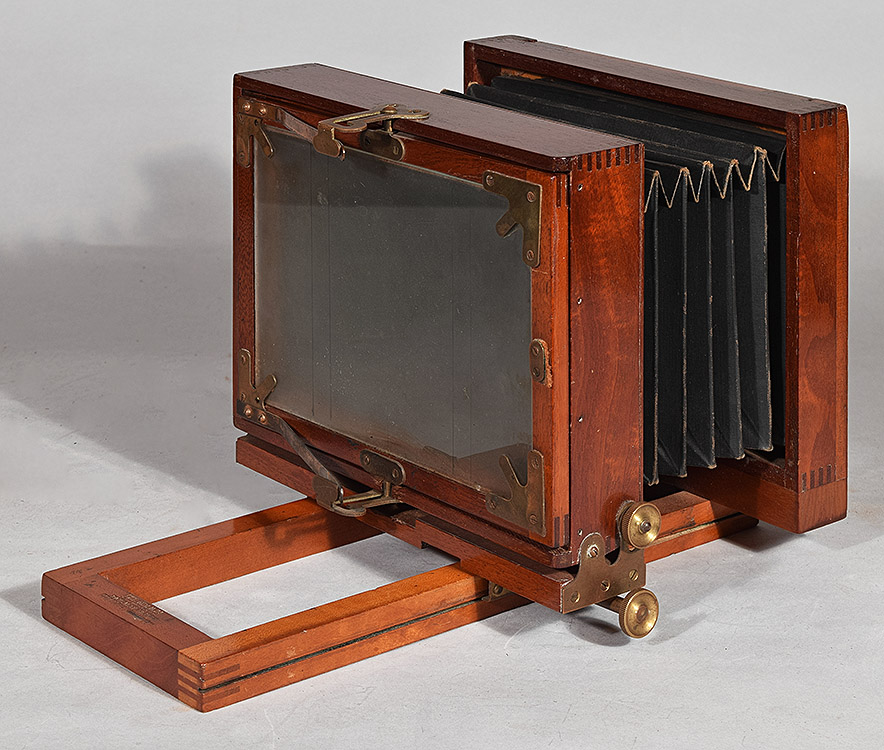
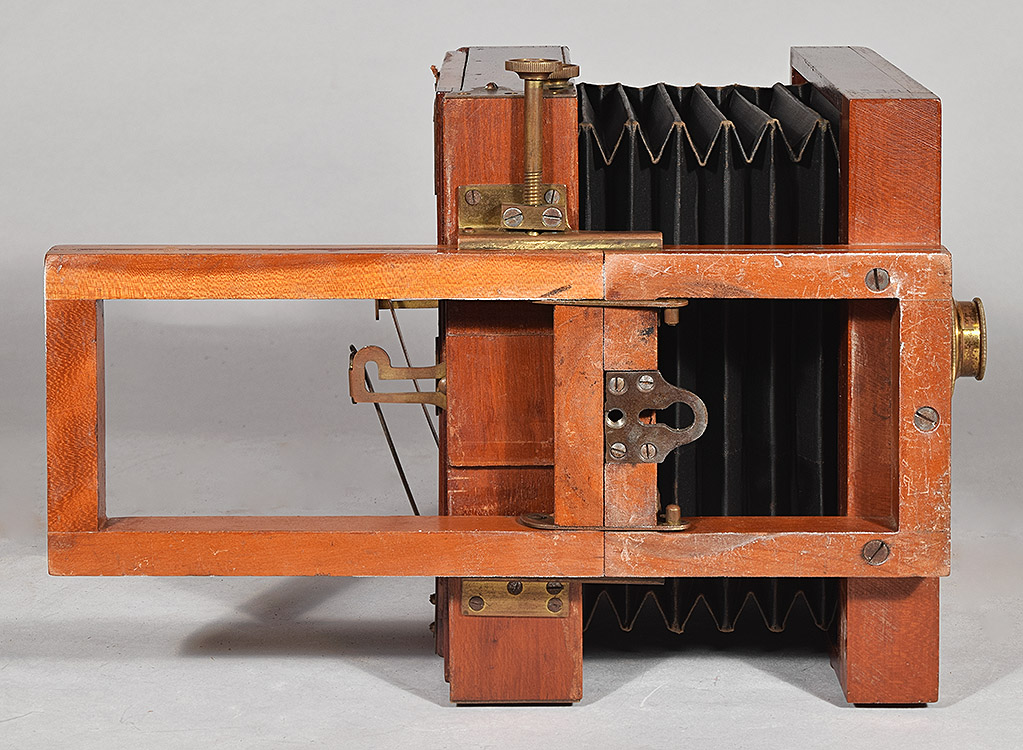
Label on
front standard
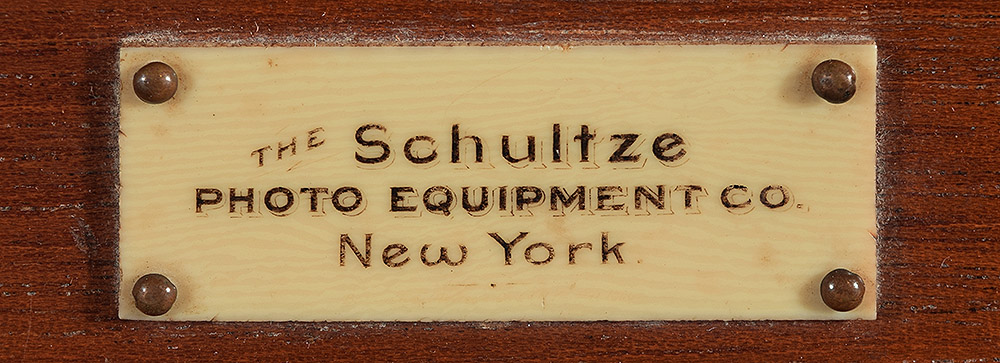
Patent stamps
on rear base rail:
6 ½ x 8 ½", Serial (or Assembly) No.
44 (on rear edge of front standard) Bottom Top
Label on
front standard
Patent stamps
on rear base rail:
Anthony "Zephyr" Plate Holder.
4¼ x 6½",
Serial (or Assembly) No. 52 (on edge of rear standard - see photo
below). Bottom Top Label, celluloid, lower
part of front standard. This label is large enough to cover any
previous Anthony label holes (see Serial No. 58 label, below). Four patents, typical on Anthony cameras of
the late 1880's - 1900: "Pat. Nov. 11,
'84", "Pat. Feb. 20, '83", Pat. May 18,
1886", and "Pat. Mch. 27, '88". Serial (or
Assembly) No. "52", front edge of the rear standard. An identical
number faces it on the edge of the front standard. Plate Holder -
Anthony "Zephyr", so called presumably because of its light weight. A Zephyr plate
holder is opened by pulling the metal stirrups at the long edges of the
holder out, and pulling the bottom completely off. The plates were
then slid in from the bottom.
6 ½ x 8 ½",
Serial (or Assembly) No. 58 (on edge of rear standard - see photo below) Label, metal (lead?), lower
part of front standard. Holes from a previous label (probably
Anthony's) are visible at the top. Two other holes are undoubtedly
under the bottom part of the label. Patents, typical on Anthony NPA model: "Pat. Nov. 11,
'84", "Pat. Feb. 20, '83" (looks like '88 but isn't), Pat. May 18,
1886", and "Pat. Mch. 27, '88". Serial (or
Assembly) No. "58".
This one is on the back lower edge of the front standard; there is an
identical one facing it on the front edge of the rear standard. Date Introduced: - ;
Years Manufactured: c. 1891-1892 This New York City
company advertised Scovill cameras in its catalogs, but also produced
(or had made for it) at least two cameras its own
unique design. Their earliest
advertisement appears to be in 1887 and their latest in 1892. In
this camera, Schultze apparently put its label on an Anthony camera,
which is, from stem to stern, the
N.P.A.
Camera Variation 2, even down to the original Anthony case,
which is unique among view camera cases, having a leather handle on the
side that slips flat into the metal retainers for storage.
Schultze-identified cameras have one of two types of labels: 1) dark
gray metal, and 2) celluloid. Whether metal or celluloid, the
labels read: "The Schultze Photo Equipment Co. New York".
The above 5x7" example has the celluloid type label, and the above
6 ½x8 ½ example has the dark gray metal type label. This is not the only
Anthony model to be so used by Schultze. The
Anthony Champion Variation 1B is also found having a Schultze
label. The lens in the above
example is an unmarked pillbox-type brass barrel lens having insertable
stops held into the front of the lens by a retaining ring. It has
a focusing capability in that it has an outer sleeve into which an inner
barrel slides. This focusing arrangement is typical for
pillbox-type lenses of the era; what is unique in the Schultze pillbox
is that the inner barrel has been metallurgically treated to become
black. It may be oxidized or some other chemical form, but the
coating is too thin to have been painted. This lens can also be
seen in the
Anthony Champion Variation 1B, 4 ½x6 ½" example. References:
Feb. 20, 1883 (plate holder with hinge on front)
Nov. 11, 1884 (clamp
hooks for making the bed rigid)
May 18, 1886 (focusing attachment)
Mch. 27, 1888
(spring back)

-npa.var.2-6x8-a-with.case&holder-2000.jpg)
-npa.var.2-6x8-a-cam.only-1500.jpg)
-npa.var.2-6x8-b-750.jpg)
-npa.var.2-6x8-c-750.jpg)
-npa.var.2-6x8-d-750.jpg)
-npa.var.2-6x8-e-750.jpg)
-npa.var.2-6x8-f-1500.jpg)
-npa.var.2-6x8-bottom-1500.jpg)
-npa.var.2-6x8-top-1500.jpg)
-npa.var.2-6x8-label.lower.front.std-1500.jpg)
Feb. 20, 1883 (plate holder with hinge on front)
Nov. 11, 1884 (clamp
hooks for making the bed rigid)
May 18, 1886 (focusing attachment)
Mch. 27, 1888
(spring back)
-npa.var.2-6x8-stamps.back.of.platform-1500.jpg)
-npa.var.2-6x8-plate.holder.1-1500.jpg)
-npa.var.2-6x8-plate.holder.2-1500.jpg)
This camera has hardly spent any time outside of its case, and so
retains the light, natural finish, yet to be darkened by exposure to
light. The camera would have looked pretty much like this when
new.
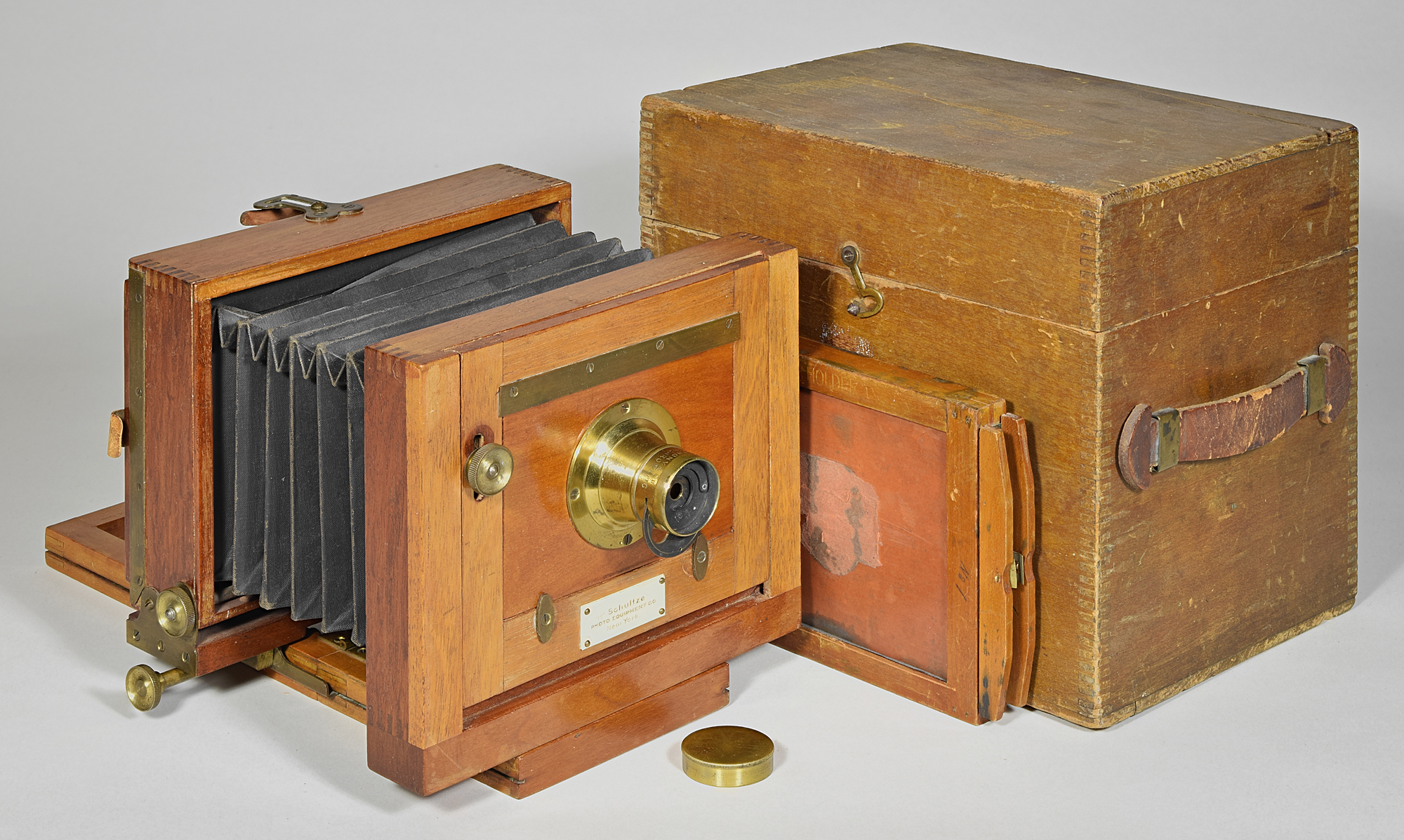
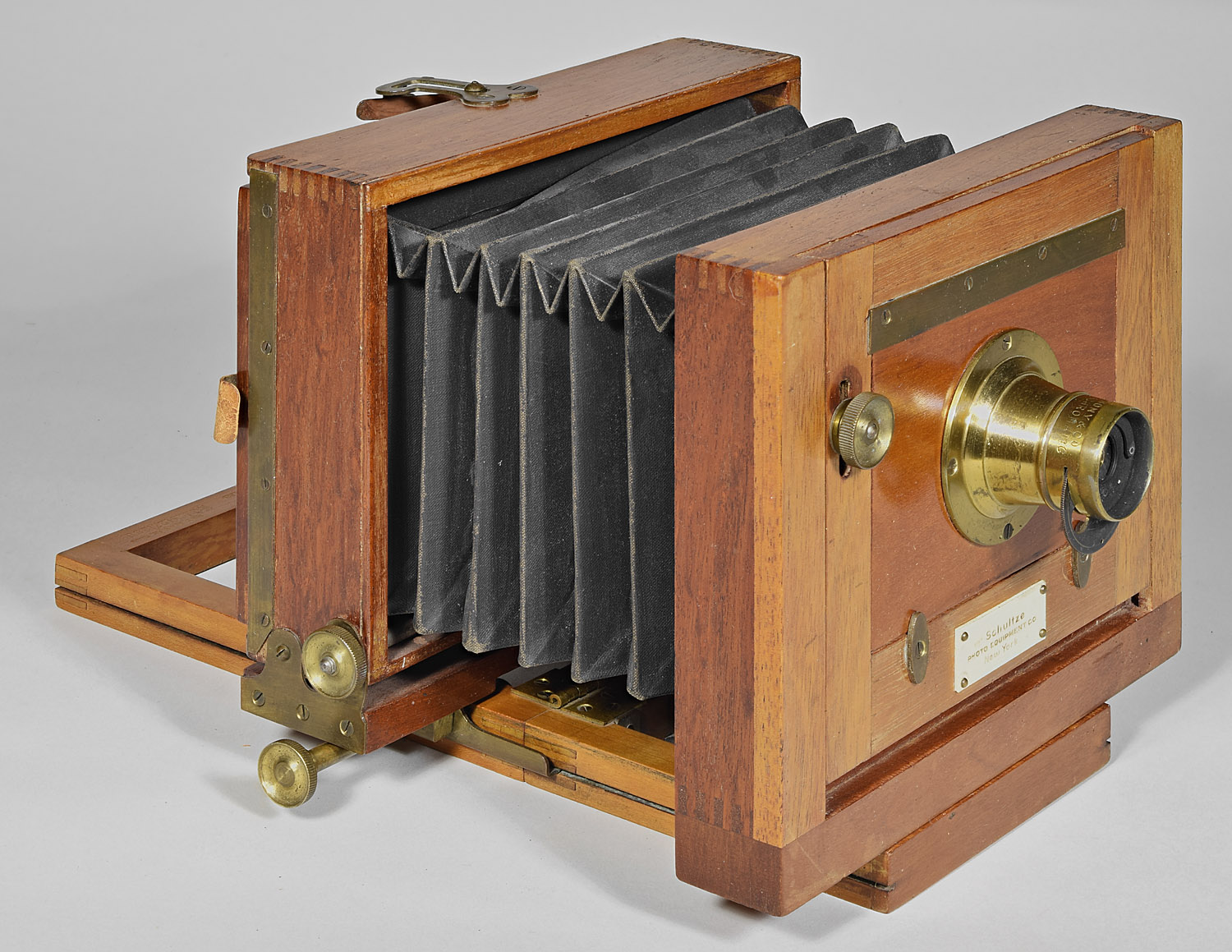
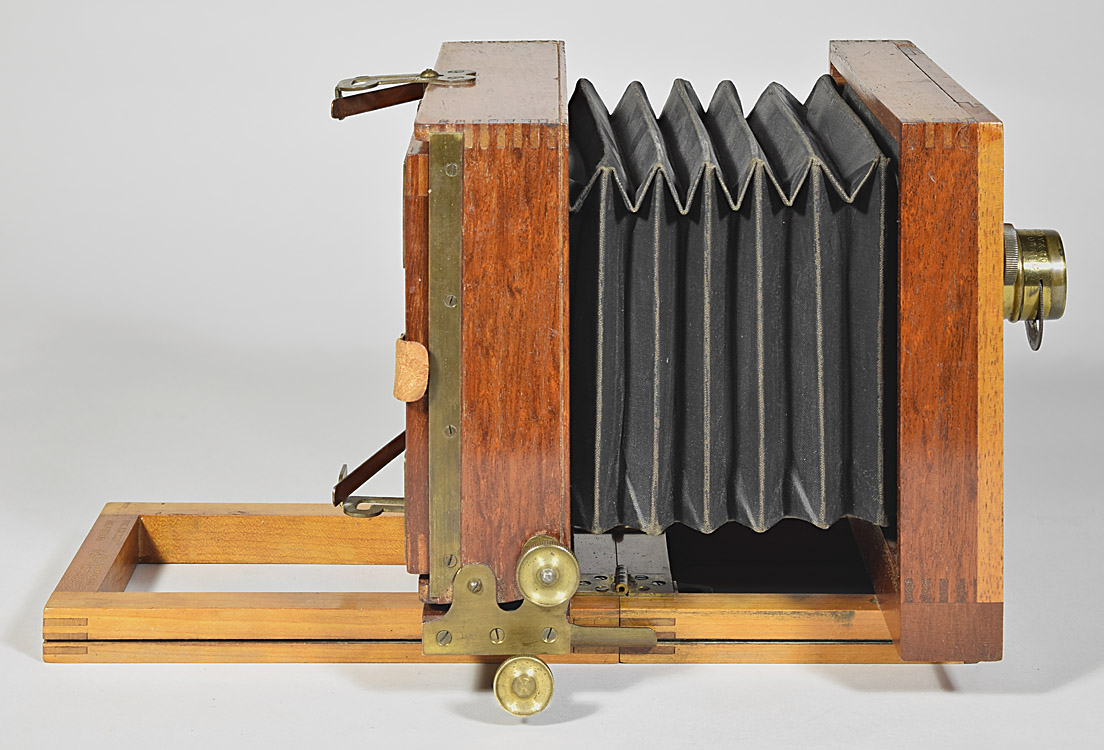
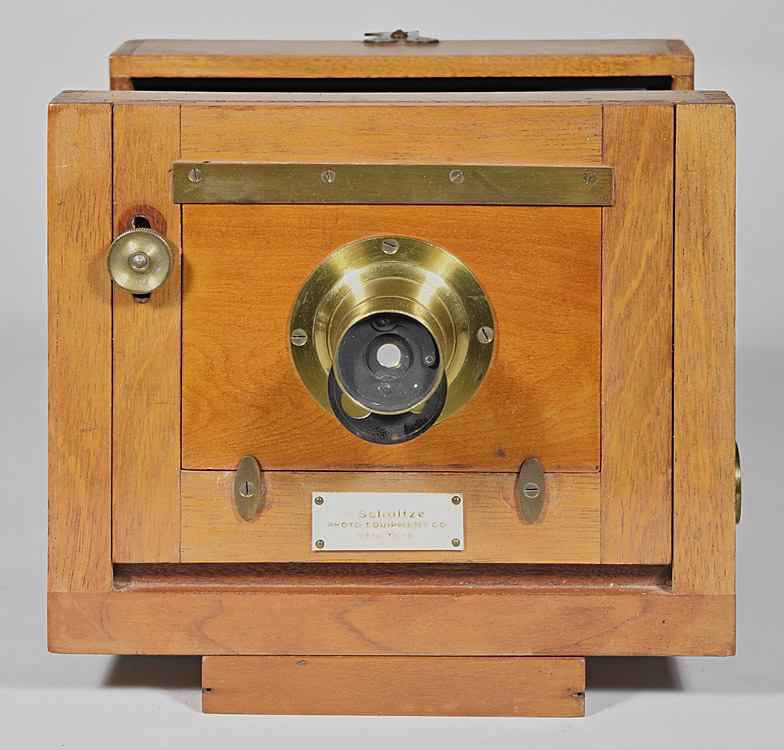
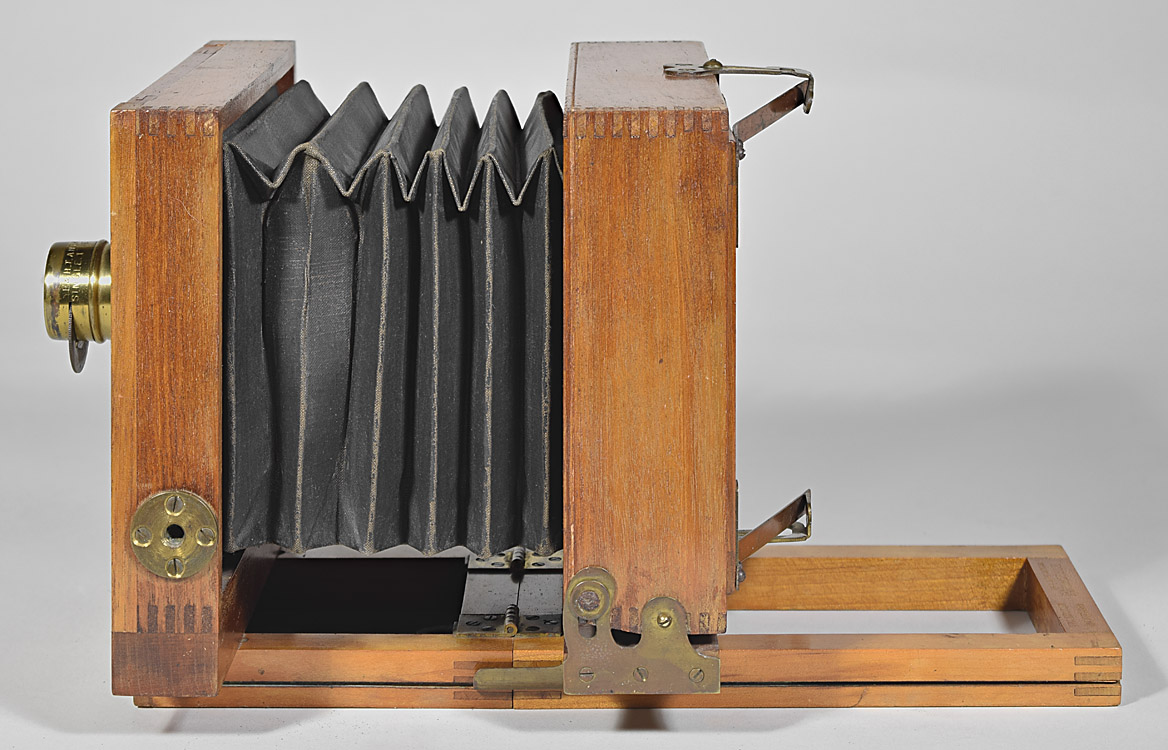
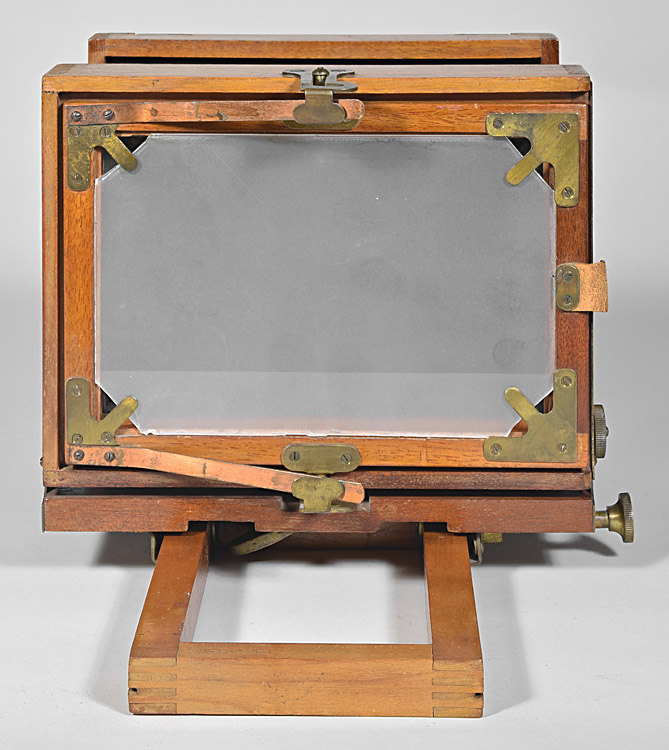
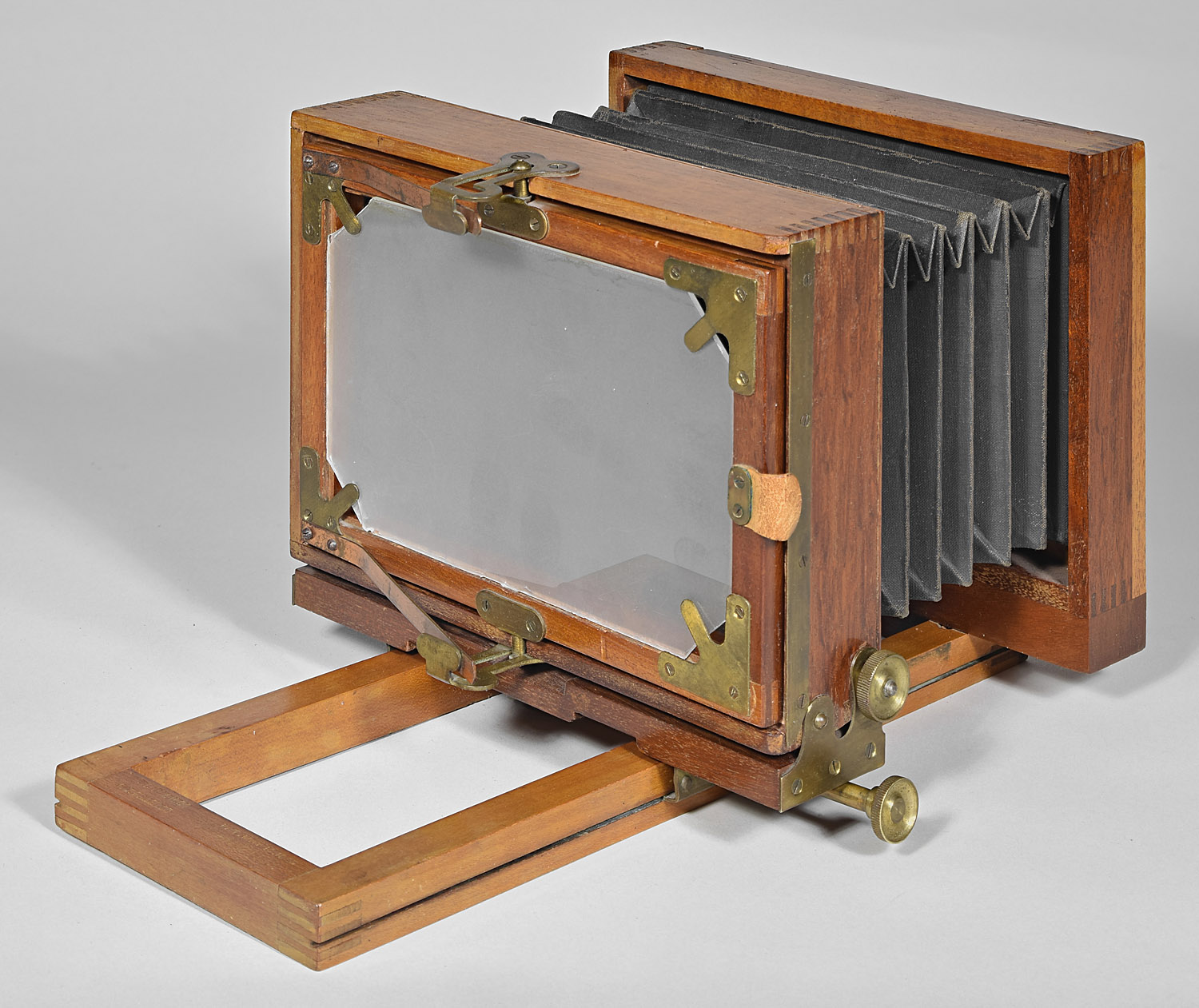
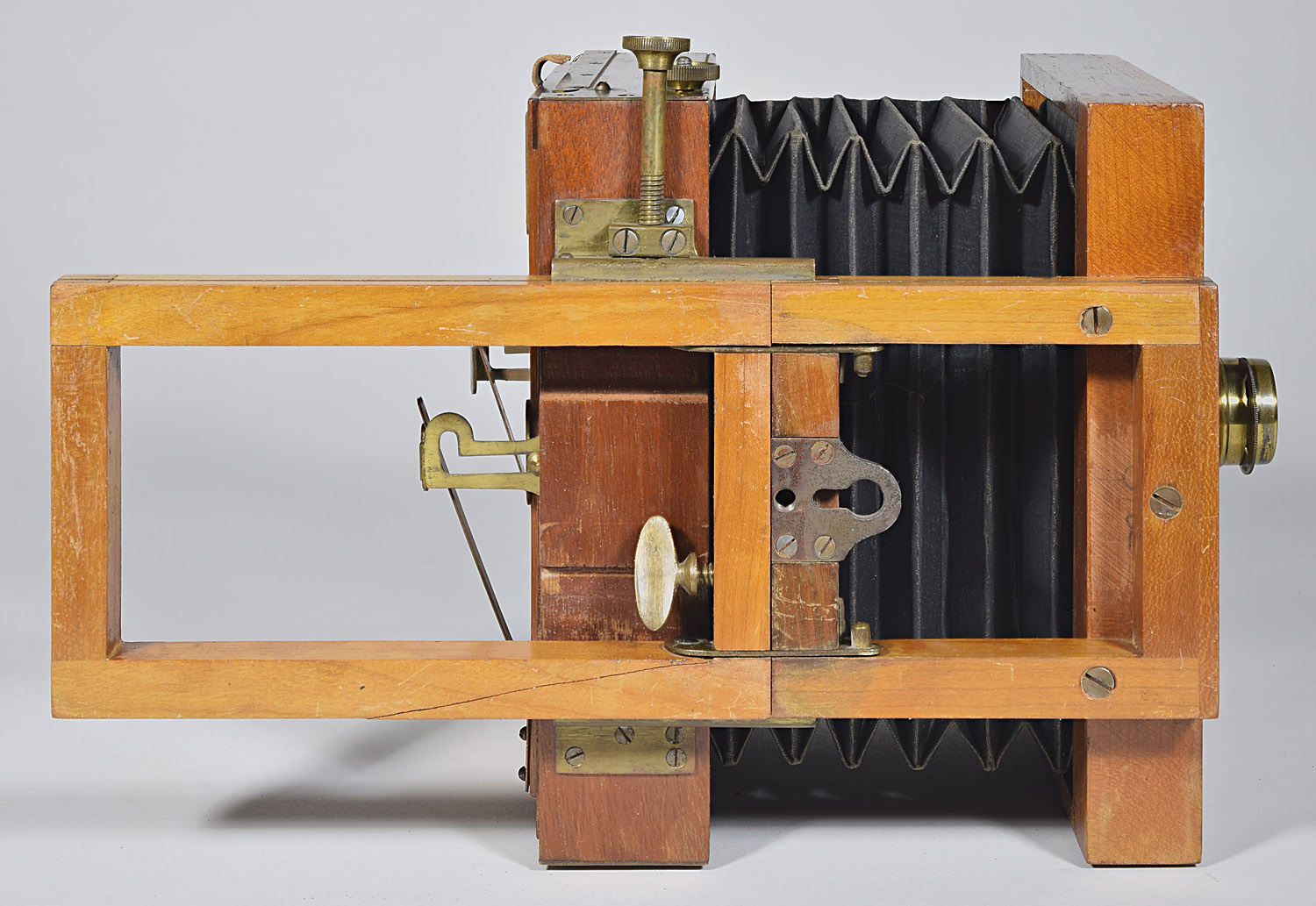
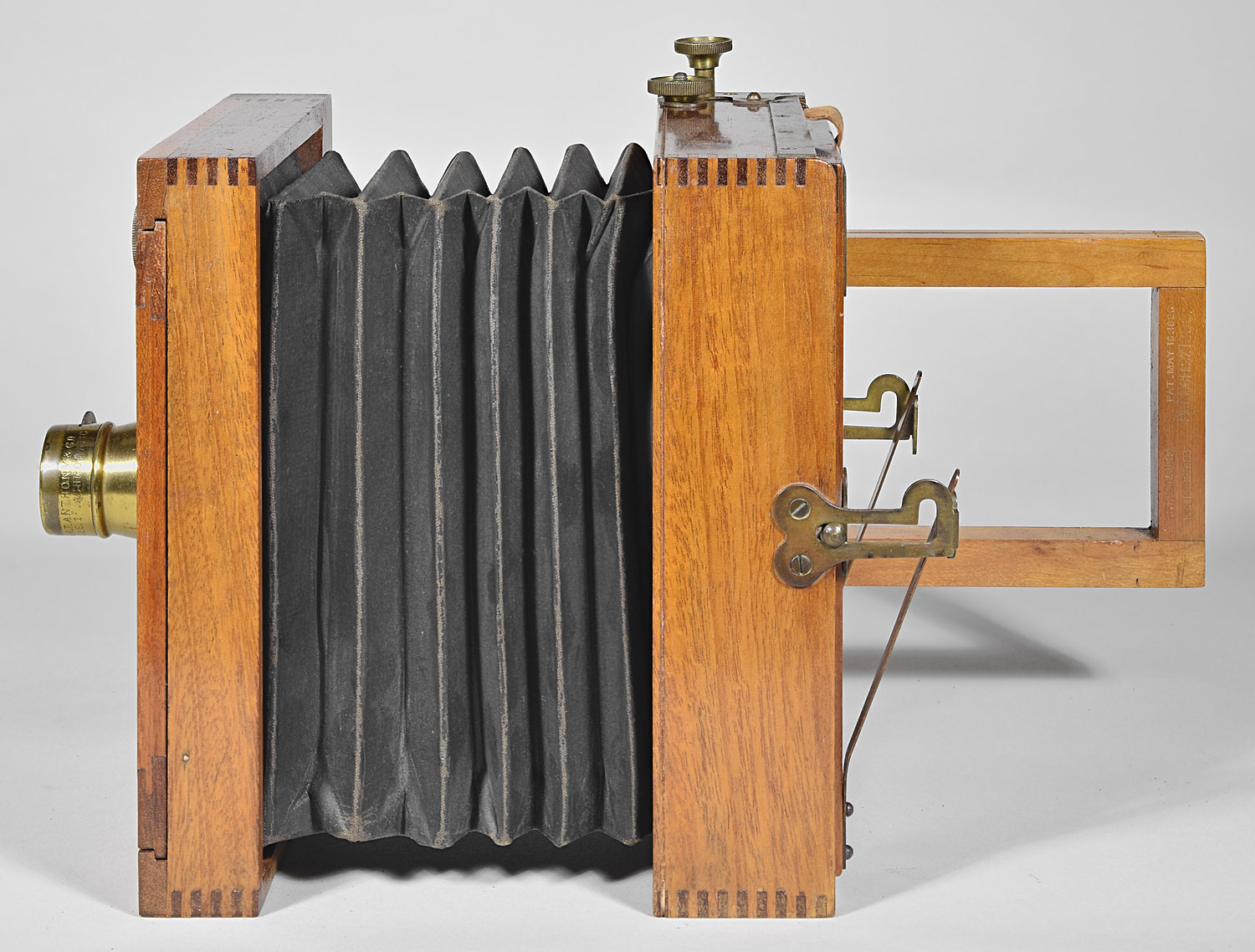
The label is faded, or was never very dark, but is identical to that on
Serial (or Assembly) No. 15, above, and reads: "The Schultze / Photo
Equipment Co. / New York"



Having hefted quite a few plate holders, I can attest that the weight of
the glass plates is about half the weight, regardless of how light the
holder is.
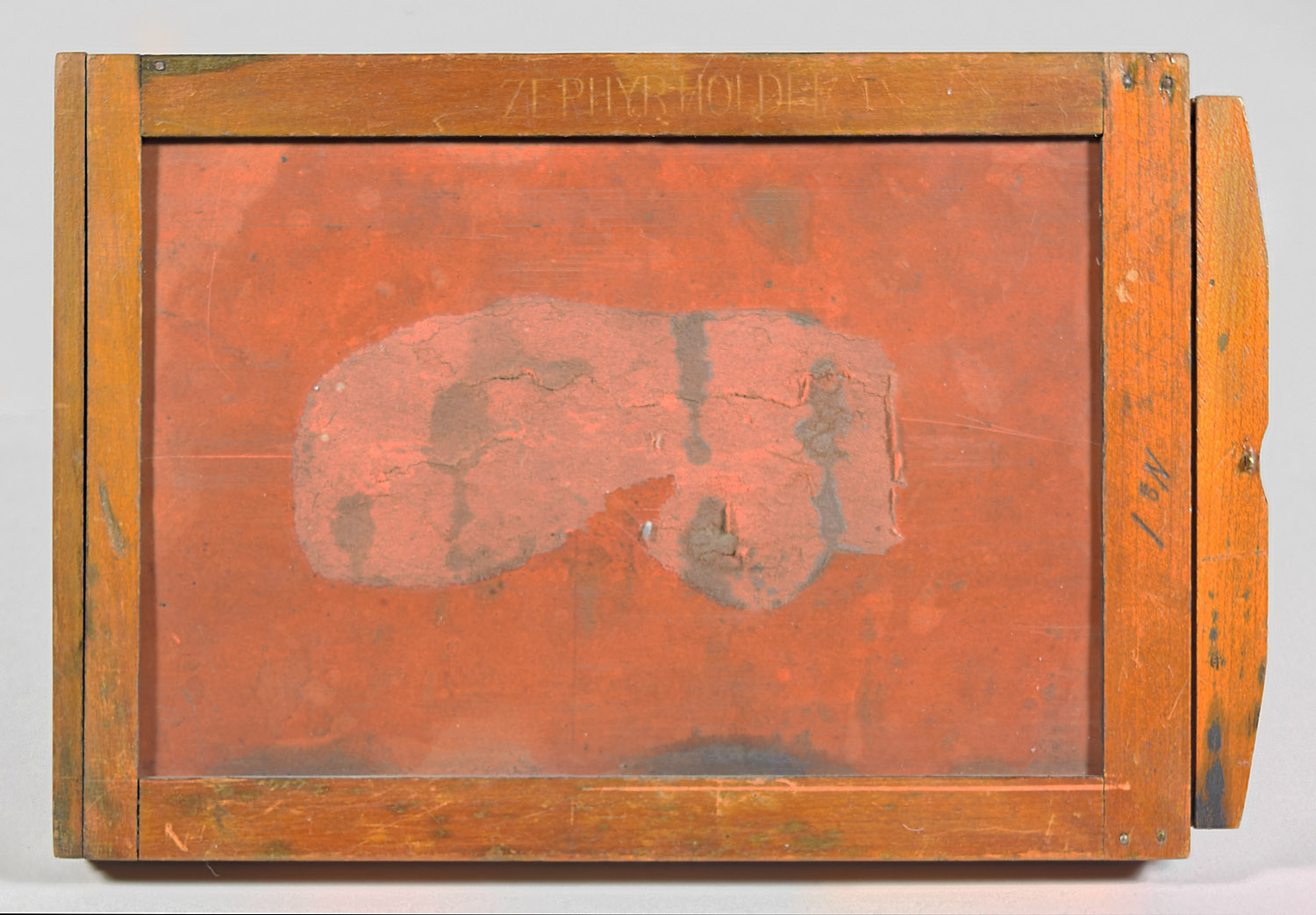
This would, since the plates of the era were only sensitive to blue
light, take place in a darkroom having a red (usually) lamp. In
the field, red tents would be used as a darkroom.
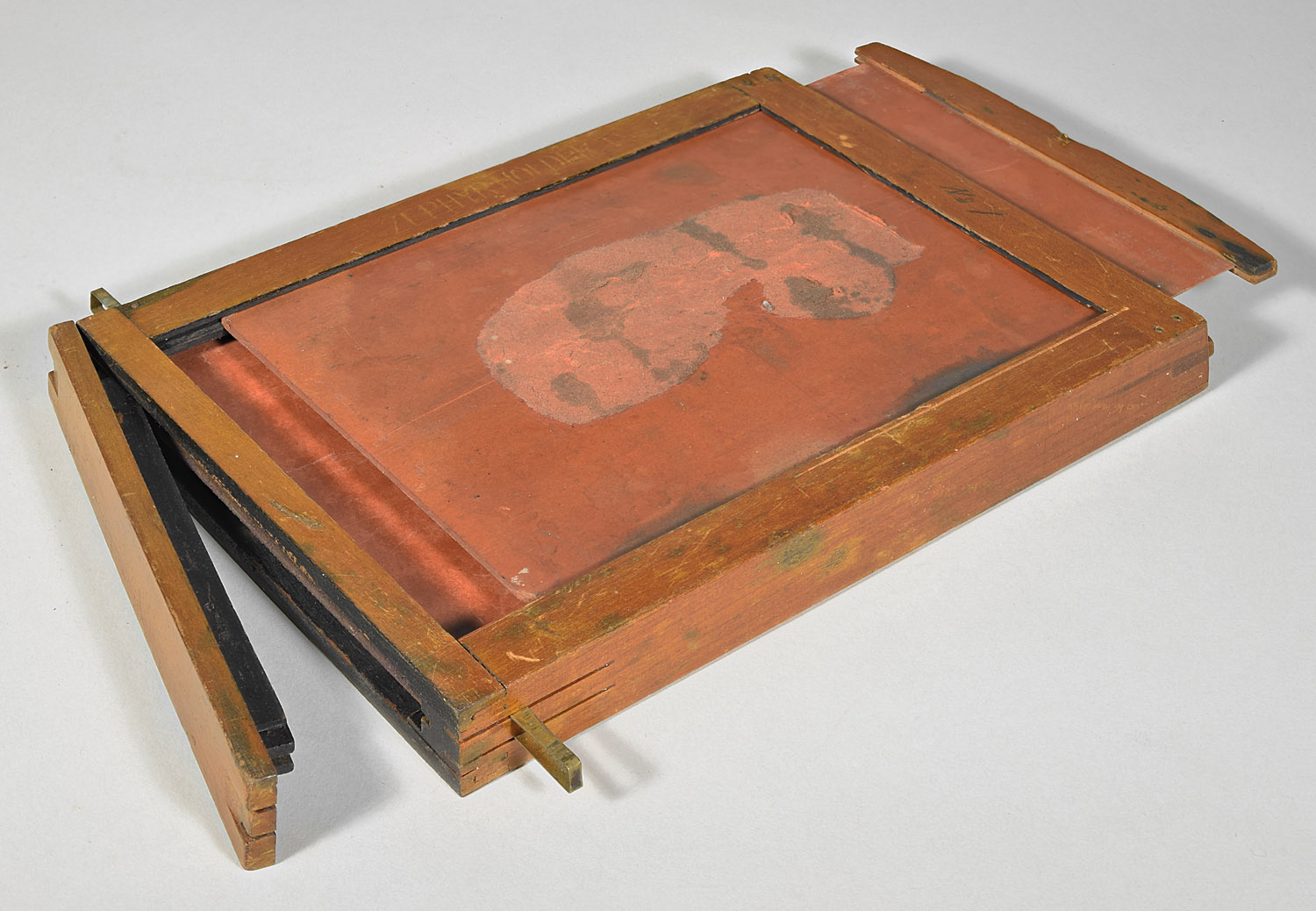
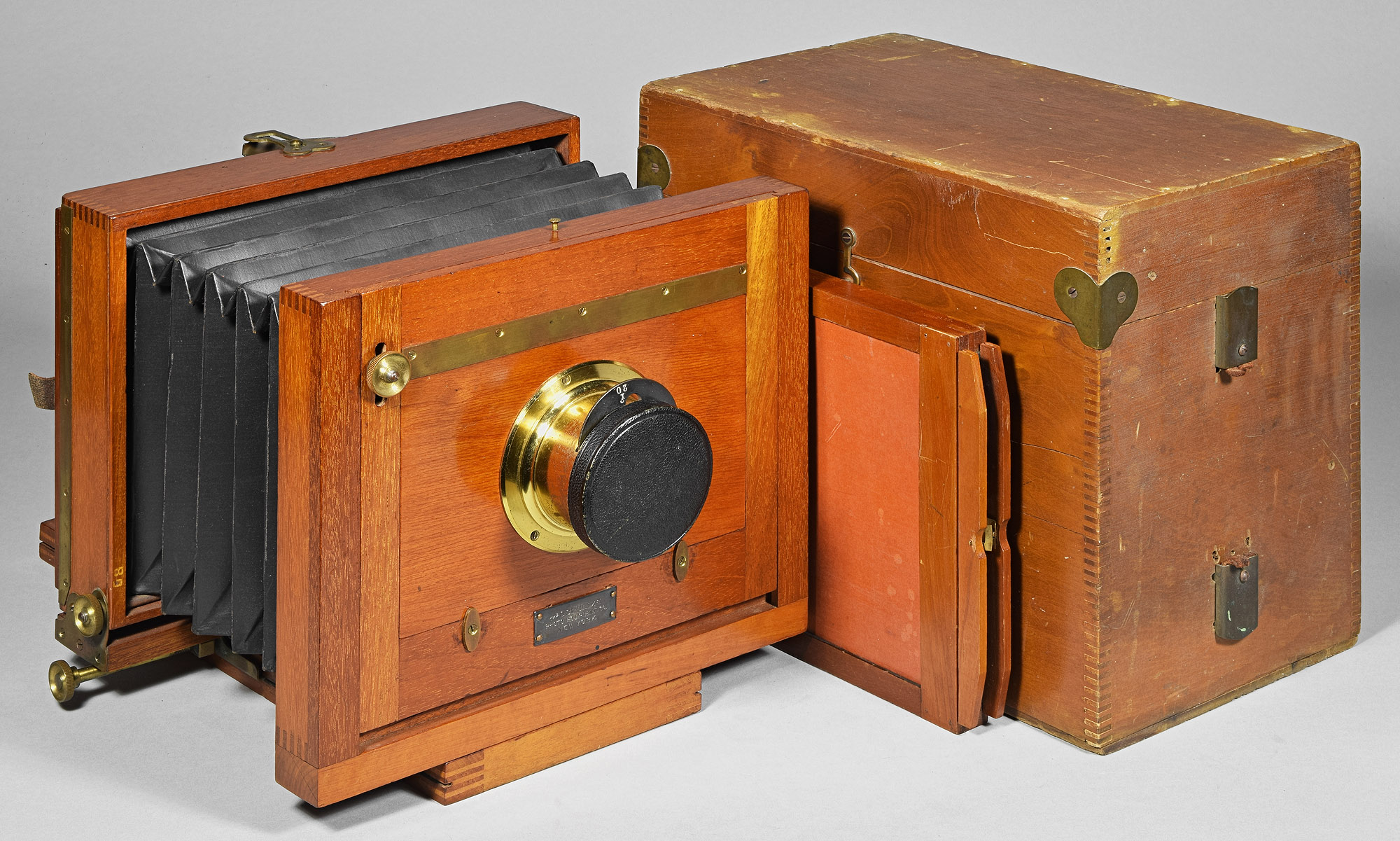
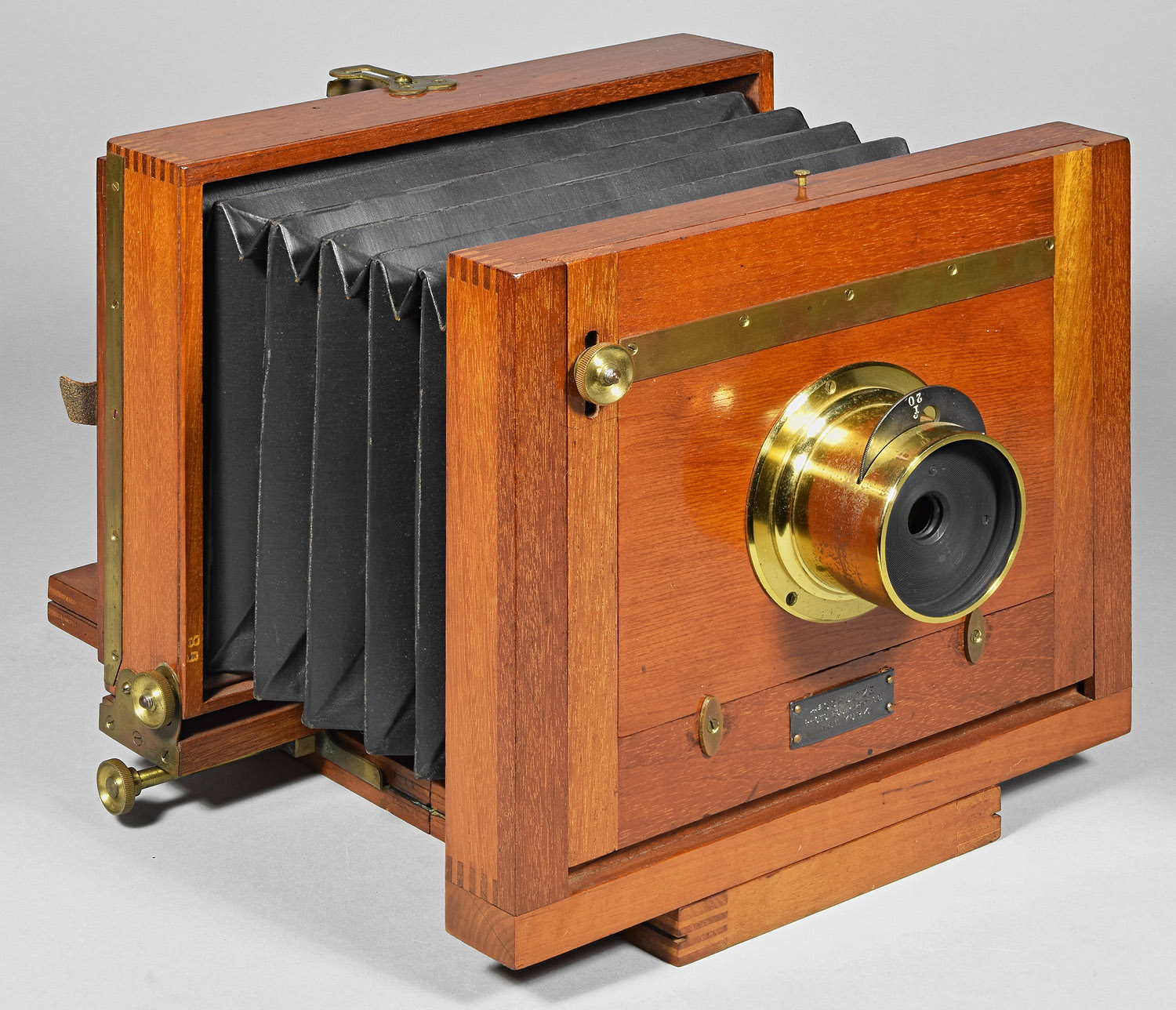
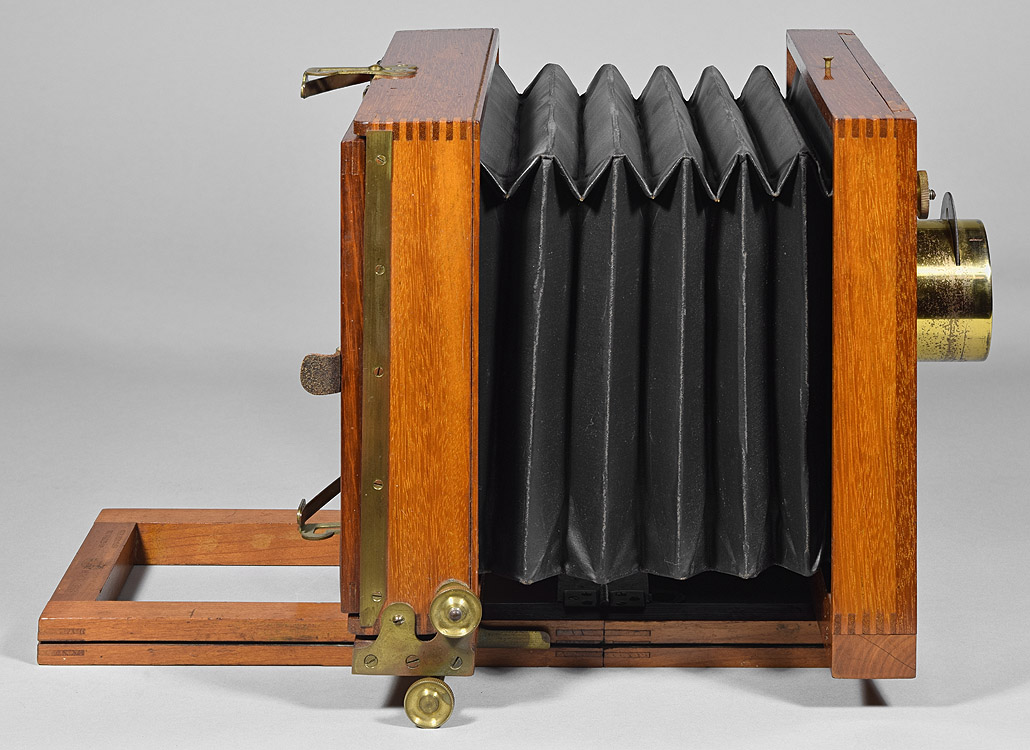
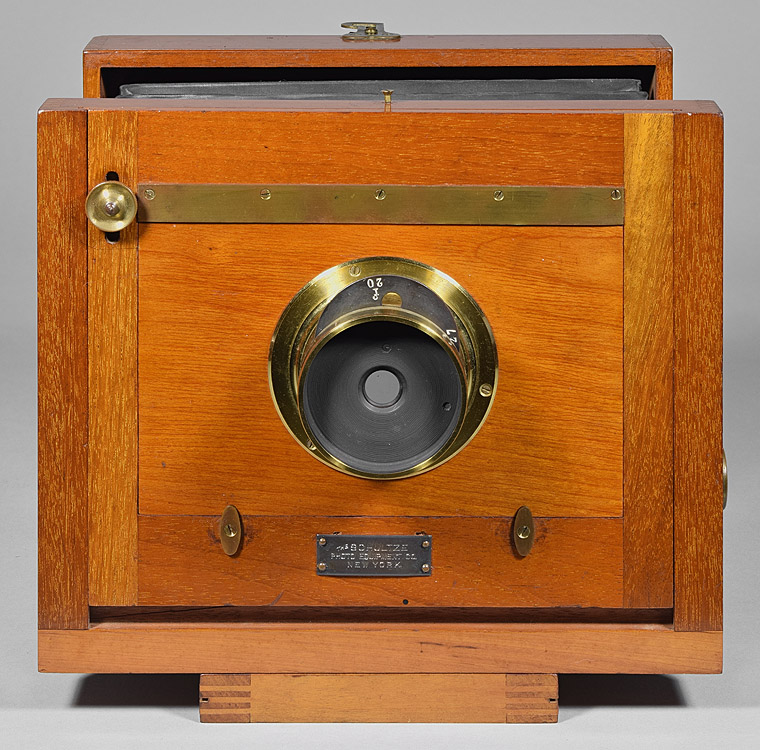
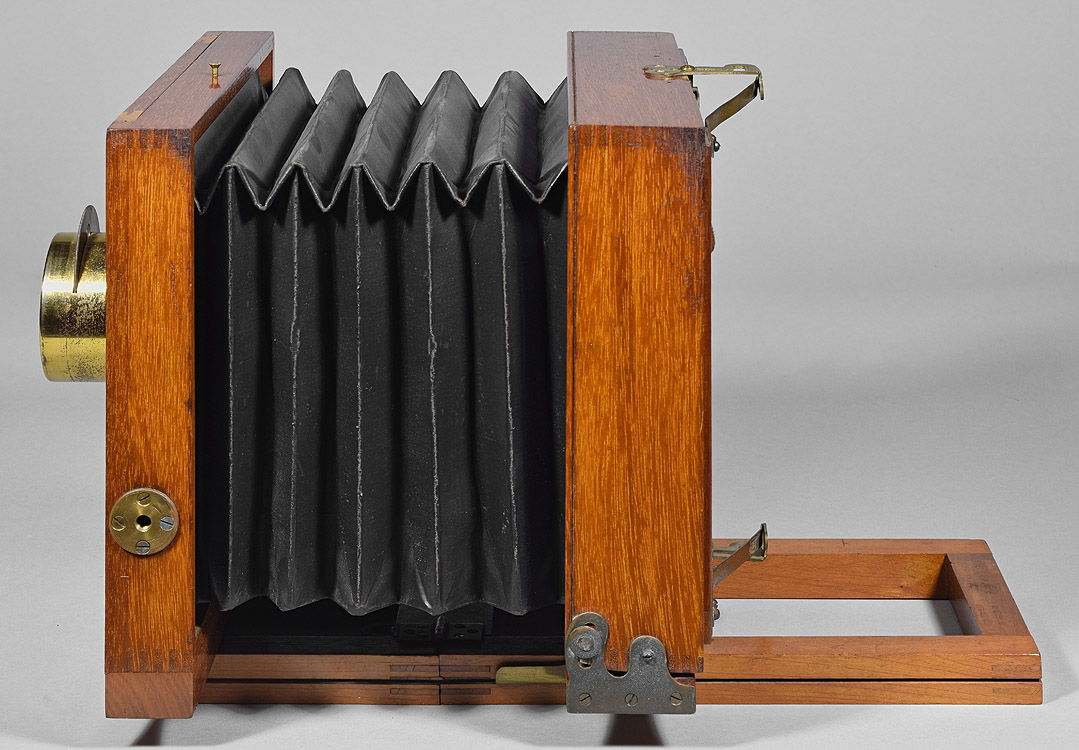
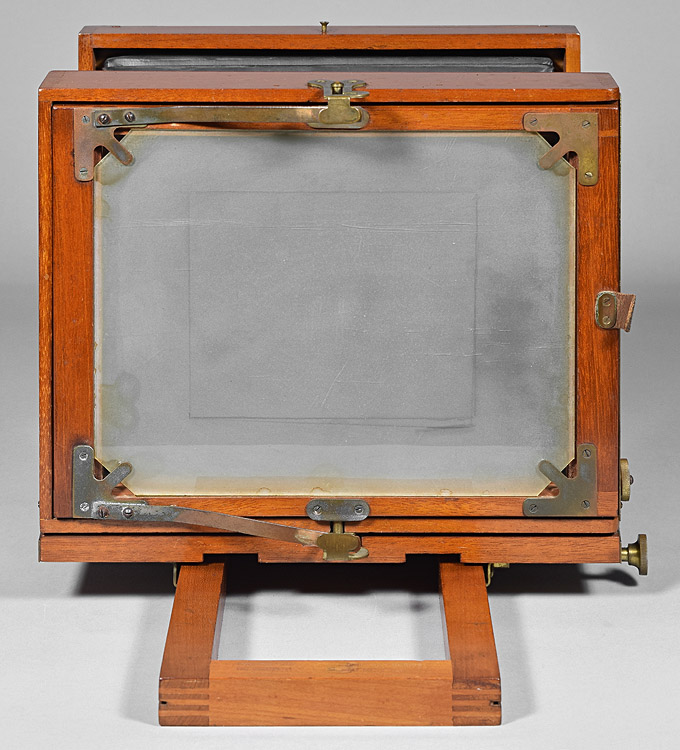
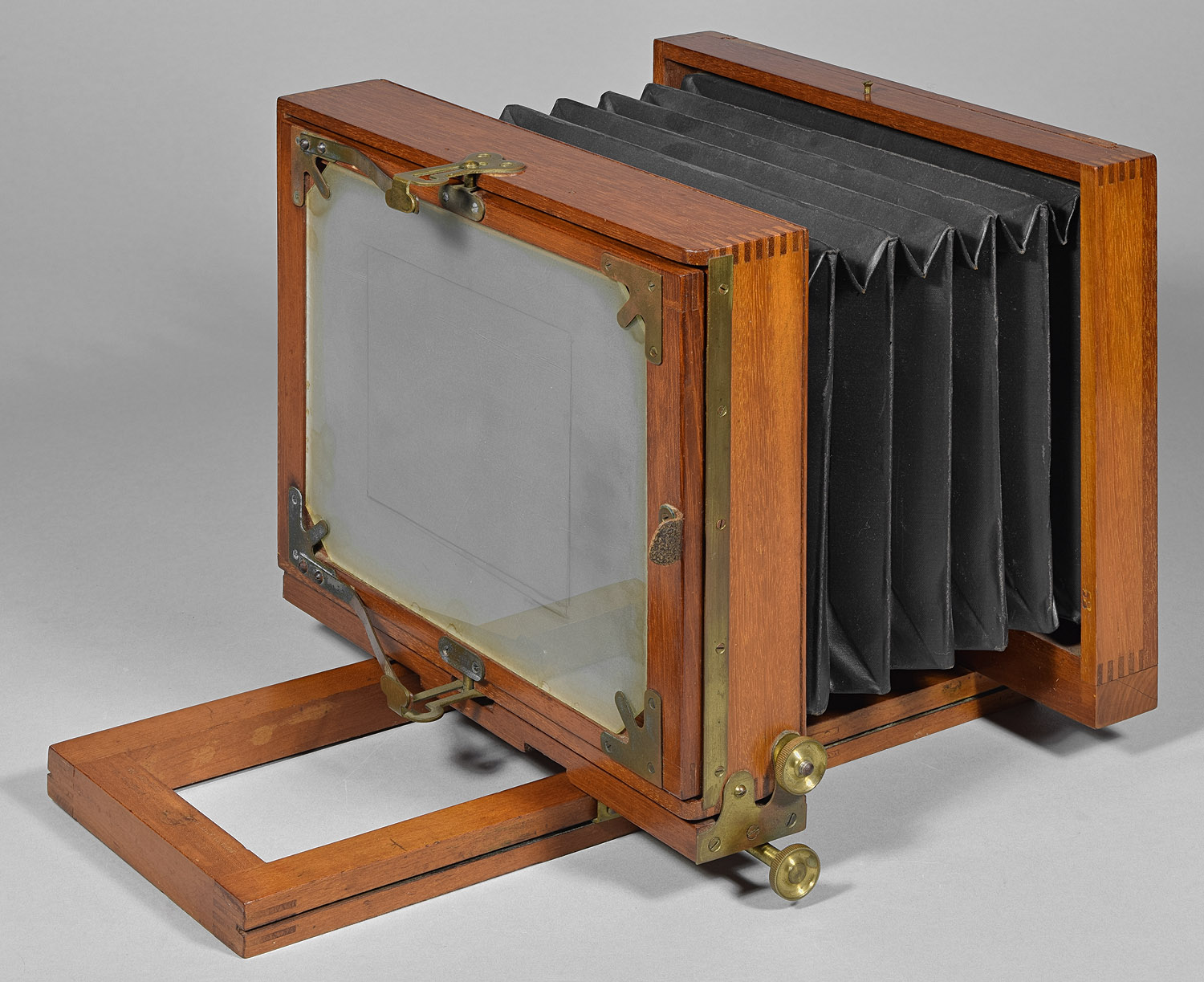
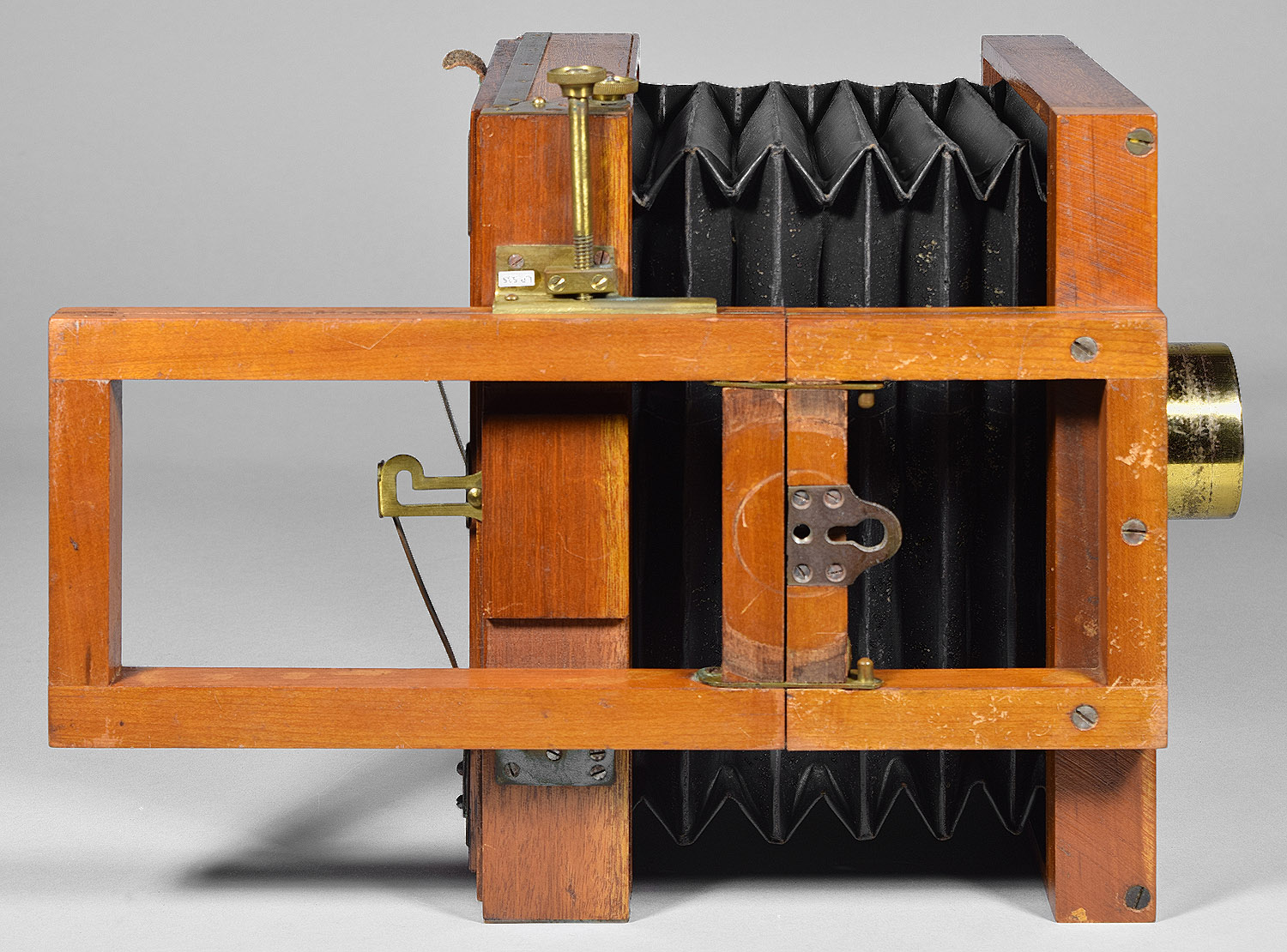



Construction: back focus
via push-pull; single swing; reversing by means of a second
tripod mount; plywood lens board
Materials: mahogany wood body; cherry base;
black fabric bellows; brass hardware
Sizes Offered: at least
5x7 and 6 ½x8 ½
Notes:
No references under the Schultze name; see
N.P.A.
Camera Variation 2 for Anthony references.
